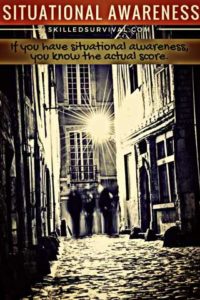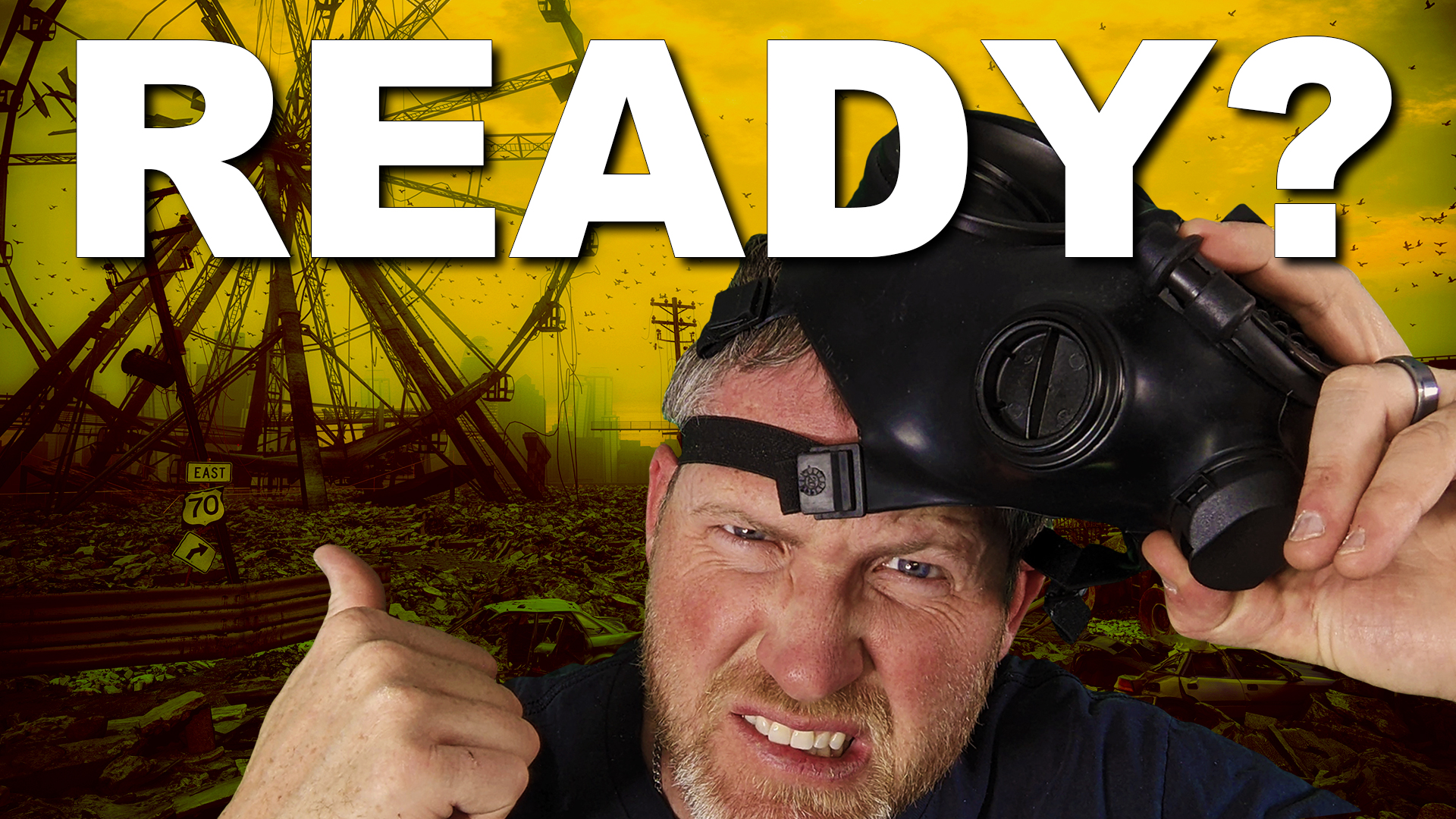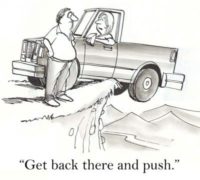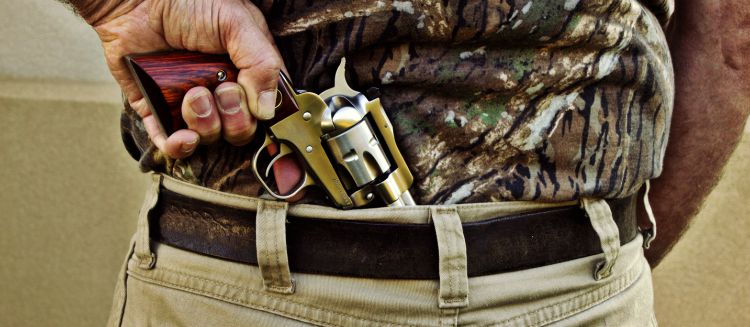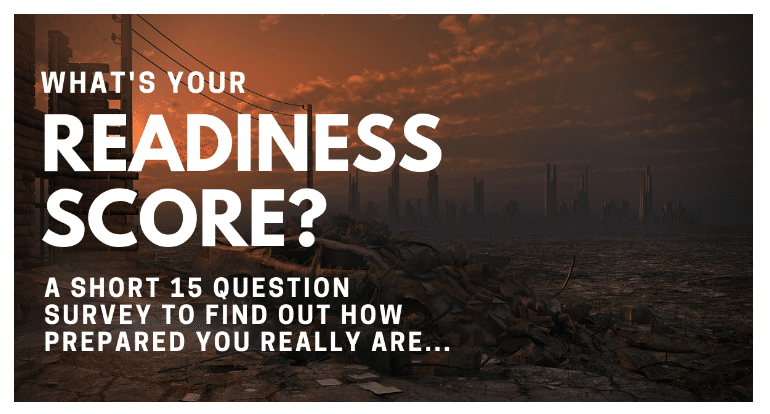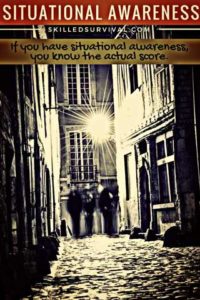
Have you ever seen someone smiling when things are going very wrong all around them?
I’ve heard it said,
“He’s smiling because he doesn’t fully understand just how royally f#&@ed we are.”
I also once overheard a Q&A between two ex-military friends of mine.
“What would you do if you knew a Soviet ICBM was inbound at your location?”
The answer?
“I’d place my head between my legs and kiss my ass goodbye – there’s no getting away from that.”
These are two examples of situation awareness.
The smiling guy has none; the military guy has about as much as they can.
10 Ways to Improve Your Situational Awareness With Navy SEAL
Are You Ready For The Tough Times Ahead? Take My 60 Sec Quiz To See If You’re Part Of ‘The Fragile Masses’ Or Not… Start Quiz Now!
Definition – Situational Awareness
So what exactly is Situational Awareness, often shortened to the acronym SA (pronounced ess-ay)?
Situational awareness is fully and comprehensively understanding one’s surroundings, environment, and situation.
Full situational awareness includes the following:
- The current level of danger
- The level of difficulty
- Support
- Obstacles in the way
- Exit locations
- Contributing factors
- Etc.
If you have good situational awareness, you know the actual score. If you have poor situational awareness, you’re mostly lost.
Lost people are of little help – unless the goal is to get lost or disappear – and even then, they may not have the situational awareness to do it successfully.
It’s important to know this about someone before you find yourself in an emergency with them for two primary reasons:
- He will be of little to no help, and
- He may not even realize the situation is life or death, which can be worse than no help.
Why You Must Maintain Situational Awareness
As A Way To Introduce You To Skilled Survival, We’re Giving Away Our #78 Item Complete Prepper Checklist. Click Here To Get Your FREE Copy Of It.
How To Recognize Someone Lacking SA
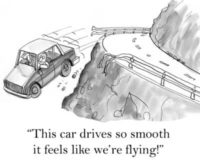
Most of us can think of at least one person out there we’ve dealt with that “just doesn’t get it.”
You wonder – if you could see through this person’s eyes, would the sky still be blue or the grass green?
When speaking with this person, eye contact is fleeting and unfocused.
In fact, “unfocused” describes this person very well in many respects.
When they occasionally do meet your stare, you see the utter confusion. And oddly enough, you might see it when theirs no apparent reason to be confused.
I knew one military guy with these attributes – the hundred-yard stare and brief confused eye contact. Constant comments indicated he didn’t fully understand what was happening around him.
While that thousand-yard gaze might be a symptom of poor situational awareness, it mustn’t be confused with something else.
I’ve known guys with that same unfocused gaze, always staring off into space. However, they would come back with the absolute right answer at the right time. That’s called being contemplative.
Some people stare off into space as they formulate the best answer or strategy. It helps them focus on the task at hand – to look away and focus on something in the distance or even close their eyes.
So how do you tell the difference?
The guy or gal with poor situational awareness either won’t respond with an answer (because they’re disengaged and not thinking).
Or – even worse – they’ll come back with a terrible idea – and sometimes not just bad, but not even relevant.
How to Develop Situational Awareness
Do Bad Ideas Prove A Lack Of Situational Awareness?
Yes and No.
Having a finely tuned sense of situational awareness doesn’t mean you’re always right.
A person who is acutely aware of their situation can still have very poor judgment.
However, a bad idea due to a lack of situational awareness tends to reflect an entire misunderstanding of the problem.
One must understand the problem to be able to solve it correctly. And fully understanding the problem is what we’re talking about here – that’s what SA is.
Words. Conversation. Nouns, verbs, adjectives.
These are some of the best indicators of situational awareness.
When you converse with someone about a problem, you can tell immediately if they understand it. You know almost immediately if you are on the same page. You can hear it in their words and see it on their faces.
Well-timed humor can also come into play here.
A well-played curse word or morsel of sarcasm is sometimes the best indicator someone completely understands the situation.
By the way, if that sarcasm doesn’t make sense to you – one of you doesn’t fully understand what’s happening.
Hopefully, it’s not you!
As A Way To Introduce You To Skilled Survival, We’re Giving Away Our #78 Item Complete Prepper Checklist. Click Here To Get Your FREE Copy Of It.
How Do You Know If You’ve Got Situational Awareness Or Not?
Warren Buffet once said
“If you’ve been playing poker for half an hour and you still don’t know who the patsy is, you’re the patsy.”
This brings up another problem. We all want to be able to identify who among us has good situational awareness, but how do we know if we do?
The guy with poor situational awareness usually doesn’t even realize it! This is a tough one. It can’t come from inside. Validation of this fault must be external.
The only advice I can give here is to seek out the counsel of someone you trust. Someone you deem to be wise, with good situational awareness and sound judgment.
Maybe they have wise insights into politics, technology, entertainment, sports, and international affairs. Whatever you typically discuss, if you understand where he or she is coming from, you most likely have good situational awareness.
You may not agree with his or her opinions, but you understand them. That’s the key.
People with good situational awareness won’t always agree on solutions to problems, but they share a common understanding of the problem.
Now, if you find you don’t have good situational awareness – and this is a difficult thing for anyone to admit – you have a problem.
Most people will never admit it because they don’t realize they do not see things as they really are. It isn’t easy to recognize it in oneself.
But, on the outside chance you do recognize it, what can you do?
How Aware Are You? Situational Awareness Test #1
Can You Learn Situational Awareness?
Simply put. Yes. But with great effort.
Usually, I’d say you either have good situational awareness or you don’t. I’ve never known anyone to gain it suddenly.
However, we are humans, and we can learn new behaviors. People with good situational awareness naturally “see” things as they are.
They automatically recognize patterns and create paradigms in their thinking with little conscious effort. It’s a gift.
However, someone who does not have the gift can work on it and develop it – at least in theory.
Navy SEAL Teachs Situational Awareness
What’s Going On In The World?
First of all, poor situational awareness often comes from not being versed in what’s happening in the world.
A person striving to develop better situational awareness needs information. In the old days, I’d tell this person to watch the news or read a newspaper every day – so you know what’s going on out there.
However, with the state of journalism today, there can be no assurance you aren’t going to be ingesting a pack of lies.
There is so much opinion, gossip, mudslinging and downright lies in the media today that you can never be sure what the truth is.
The Internet is no help either. You can find news stories that Arctic ice is melting at record levels, and that satellite imaging shows Arctic ice is growing faster than ever before in history.
If you read the media today, you’d think the KKK was a huge political force in American politics, when in reality, their membership is estimated to be more like 3,000 Klan members. A microscopic fraction of the 300 million Americans.
Today’s news stories have political agendas designed to hurt someone from the left and right.
There’s no more objective fact-telling. You have to establish your own BS filters.
The great World-Wide Web is a fantastic resource because it holds all the information about Mankind. Both right and wrong – which also makes it nearly useless.
Educate yourself – but take everything with a grain of salt. In fact, the craziness you see in the news should help form useful paradigms.
Learning patterns of media madness may (hopefully) help you recognize BS in the future. That can only help improve your situational awareness.
Other forms of education to improve situational awareness include:
- Human physiology
- Survival skills
- Nutrition
- Technology/Computers
- Firearms
- Political science
- Economics
- Banking
- Systems of government
- World and US history
- And on and on
The more you learn, the more you read, and the more patterns and paradigms will form in your mind. Over time situations will become better defined, and you’ll recognize them as they happen.
As A Way To Introduce You To Skilled Survival, We’re Giving Away Our #78 Item Complete Prepper Checklist. Click Here To Get Your FREE Copy Of It.
A Situational Awareness Example
Here’s an example:
A man’s car breaks down on a little-traveled road in the Mojave Desert. He sees a road sign that says: Next service station – 15 miles.
He thinks to himself, I can walk three to four miles an hour. That means I can be there in roughly four to five hours.
In this case, he has just enough situational awareness to be dangerous.
Yes. He knows it will be a long walk. He knows he can walk for four to five hours because he’s done that in the past. Great. So how does his SA come up short?
He doesn’t consider that it’s 105 F in the shade, there is no shade, no cloud cover, and he has no water.
He doesn’t realize that the moment his car died, a biological stopwatch started. A countdown clock until the end of his life.
A gallon of water would add time to that clock. Shade from the sun would add time to that clock. Shelter during the day and traveling at night would add time to the clock.
Walking with no cover in the heat of the day takes time off the clock. He starts on his journey and is found dead along the road three miles short of his goal.
As I said before, good situational awareness is not the same as good judgment. However, it’s the starting point for good judgment.
You can’t make a good decision or develop a good solution to a problem until you have the problem well-defined.
That means recognizing things that help as well as hurt. We often tend only to consider the negative, but good situational awareness also identifies assets and how they can help.
In some cases, during my analysis of what I thought was a problem, I found many positive influences already lined up against the problem.
It turned out the problem was no problem after all. No intervention was needed from me. My good situational awareness prevented me from wasting more time on an issue that was already solved.
In some cases, too much situational awareness can be a problem.
These people tend to be paranoid. They understand their situation but mentally extrapolate dire consequences that may never occur.
What About Too Much Situational Awareness?
Too much situational awareness can lead to a mental breakdown.
For example, I have found most women have struck the right balance of situational awareness.
One evening, I was in a restaurant with my wife, and we were talking about men scoping women in public. You know, those men who steal extra long glances when an attractive woman walks by. The glance that will get you in trouble with your wife – if caught.
She said she was going to the restroom, and I chose that moment to make my point. I told her at least a half-dozen men would steal a glance at her “derriere” on the walk to the restroom. She said I was crazy.
She knew men stole those glances at women, but not at her and not all the time.
Confidently she got up and walked to the restroom – and I saw at least a half-dozen men turn their gaze her way as she passed. She never noticed a single one.
She has situational awareness (she’s not oblivious) but not too much of it.
Maybe it’s a mental defense mechanism.
I mean, if women went through their lives knowing every innocent stroll across the room would lead to a dozen men fantasizing about them, it would drive one crazy.
Situational Awareness For Survival
First of all, do your best to self-assess. Try to figure out if you have good or bad situational awareness. You can only improve if you admit you have room for improvement.
If you have bad situational awareness, then I recommend you start working on it. Practice assessing problems and then coming up with answers. Then compare your analysis against someone you trust. Someone who “get’s it.”
If you’re blessed with good situational awareness, the best thing you can do is try to avoid those who don’t.
Not much worse than ending up in a dangerous survival situation with an ignorant dolt.
They won’t just “not help” the situation, but they could become a serious liability.
So keep an eye out for those with low (or no) Situational Awareness and beware of them. If you ever recognize someone like this, make some adjustments to your own situation – Stay Away.
Prepare, Adapt, and Overcome,
“Just In Case” Jack
P.s. Are you ready for the tough times ahead?
Find out now by taking my short Readiness Score Quiz – it’s absolutely free.
Once complete, you’ll know exactly where you stand on the “fragile” vs.” resilient” spectrum.
So click here to start the Quiz….And don’t worry; the questions are so easy a 3rd grader could answer them.
Click on the image to begin the Quiz and find out once and for all if you’re part of “The Fragile Masses” or “The Resilient Few.”
The post Situational Awareness: Staying Out Of Harms Way appeared first on Skilled Survival.


